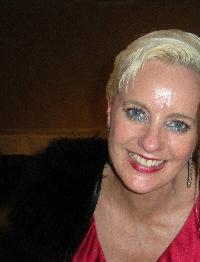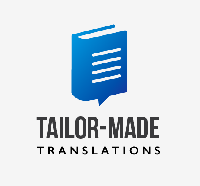| Vom Thema belegte Seiten: [1 2 3 4 5] > | Poll: If you were a "generalist", which hard core niche (broad) would you choose? Initiator des Themas: ProZ.com Staff
|
|---|
This forum topic is for the discussion of the poll question "If you were a "generalist", which hard core niche (broad) would you choose?".
View the poll results »
| | | | neilmac
Spanien
Local time: 16:42
Spanisch > Englisch
+ ...
EDI.
Electronic Data Interchange (EDI) is the computer-to-computer exchange of business documents in a standard electronic format between business partners.
| | | | Lieven Malaise
Belgien
Local time: 16:42
Mitglied (2020)
Französisch > Niederländisch
+ ...
| Specialist in translation | Mar 8 |
I've never considered myself a generalist nor a specialist. From day 1 I have accepted every possible subject to translate, and I am still doing this today. Result after all those years (apart from receiving a lot of translation requests): I feel perfectly at ease with legal, medical, engineering, policy and basically every other translation content.
I consider myself a specialist in translation. It doesn't really matter what I'm presented with.
If I would have to give ... See more I've never considered myself a generalist nor a specialist. From day 1 I have accepted every possible subject to translate, and I am still doing this today. Result after all those years (apart from receiving a lot of translation requests): I feel perfectly at ease with legal, medical, engineering, policy and basically every other translation content.
I consider myself a specialist in translation. It doesn't really matter what I'm presented with.
If I would have to give 1 single piece of advice to junior translators, it would be not to limit oneself to only 1 or 2 "specialization fields".
At the end of the day the most important asset of a translator are his linguistic skills, followed by his ability to search for and correctly analyze the information at hand, not his acquired knowledge about whatever topic (we have the internet for that). ▲ Collapse
| | | | Alex Lichanow
Deutschland
Local time: 16:42
Englisch > Deutsch
+ ...
Lieven Malaise wrote:
I've never considered myself a generalist nor a specialist. From day 1 I have accepted every possible subject to translate, and I am still doing this today. Result after all those years (apart from receiving a lot of translation requests): I feel perfectly at ease with legal, medical, engineering, policy and basically every other translation content.
I consider myself a specialist in translation. It doesn't really matter what I'm presented with.
If I would have to give 1 single piece of advice to junior translators, it would be not to limit oneself to only 1 or 2 "specialization fields".
At the end of the day the most important asset of a translator are his linguistic skills, followed by his ability to search for and correctly analyze the information at hand, not his acquired knowledge about whatever topic (we have the internet for that).
I can't quite agree here. While, yes, one should indeed not limit oneself too much, I don't think that it is really possible to really serve all areas equally, because the levels of both knowledge and interest vary pretty wildly. Personally, I would never really comfortably offer medical or pharmaceutical translation because I am completly unfamiliar with this field and can't really be bothered to make myself more familiar with it out of lack of personal interest. Sure, I could research every other term and take ages to complete what would take a specialist a few hours, but that doesn't exactly sound all that motivating and the result would not have the same quality as if it had been translated by an actual specialist.
To answer the question: definitely IT. It is my main area of specialization and the one with which I am most familiar and comfortable.
| | |
|
|
|
Lieven Malaise wrote:
I feel perfectly at ease with legal, medical, engineering, policy and basically every other translation content.
I consider myself a specialist in translation. It doesn't really matter what I'm presented with.
If I would have to give 1 single piece of advice to junior translators, it would be not to limit oneself to only 1 or 2 "specialization fields".
Boldly swimming against the flow there!
I find that the amount of research required makes it not worth my while to stray even into related fields.
For example, I can do shares with my eyes shut, but most bond stuff I avoid like the plague.
I was a generalist to begin with too, but although I did a good and conscientious job, there will always have been odd things I just didn’t know.
My first employee used to say when I corrected her work: “How am I supposed to know what I don’t know?”
In other words, you can’t know something is a false friend until you get it wrong and someone tells you.
| | | | Lieven Malaise
Belgien
Local time: 16:42
Mitglied (2020)
Französisch > Niederländisch
+ ...
Alex Lichanow wrote:
Sure, I could research every other term and take ages to complete what would take a specialist a few hours, but that doesn't exactly sound all that motivating and the result would not have the same quality as if it had been translated by an actual specialist.
Searching the internet is a skill and if you master it, it doesn't take ages to find what you are looking for, although it obviously will take more time in the beginning than after a few years. But that seems a normal investment to me.
And if you find the right terminology there is no reason to believe that the translation itself will be of a lower quality than from a person with a medical background. Even on the contrary, I've seen it many times that 'specialists" without a translation background simply suck at translation (I'm not generalizing here, I know this doesn't apply to all people without a translation background, but I'm pretty sure they are a minority).
People forget easily that translation is a real skill. There are different reasons why so many translators struggle, but simply not being good enough is certainly among the most important ones.
| | | | Lieven Malaise
Belgien
Local time: 16:42
Mitglied (2020)
Französisch > Niederländisch
+ ...
Christopher Schröder wrote:
Boldly swimming against the flow there!
This might be because I realise that as a translator I would have been long dead by now, if I would have followed most of the advice given on Proz. 😂
Look, I know all this may sound a little weird and it might be the opposite of what other people think, but it's nothing more than an attempt to try to explain why I am at the good place where I am today.
Obviously we don't know everything, but I'm pretty sure that counts for all of us, specialist or not.
| | | | Alex Lichanow
Deutschland
Local time: 16:42
Englisch > Deutsch
+ ...
| Searching the internet | Mar 8 |
Lieven Malaise wrote:
Searching the internet is a skill and if you master it, it doesn't take ages to find what you are looking for, although it obviously will take more time in the beginning than after a few years. But that seems a normal investment to me.
Searching the internet as such is not a problem, I have indeed found a treasure trove of references over the years. My problem is that I am not really keen on investing so much additional time in researching term after term because I am unfamiliar with a certain area or topic.
And if you find the right terminology there is no reason to believe that the translation itself will be of a lower quality than from a person with a medical background. Even on the contrary, I've seen it many times that 'specialists" without a translation background simply suck at translation (I'm not generalizing here, I know this doesn't apply to all people without a translation background, but I'm pretty sure they are a minority).
People forget easily that translation is a real skill. There are different reasons why so many translators struggle, but simply not being good enough is certainly among the most important ones.
Guess I wasn't entirely clear there, sorry about that. What I meant was translators specializing in a certain area, such as medical. I completely agree with you when it comes to the quality of translations done by actual domain experts instead of specialized translators. Of course they have the necessary knowledge to translate their technical terms, but many (if not most) lack the necessary translation skills.
[Edited at 2024-03-08 08:57 GMT]
| | |
|
|
|
I started out translating some 40 years ago as a generalist but pretty quickly realized that there are certain types of text I’m not qualified to handle or that I simply don’t enjoy. There are a few unfamiliar areas I will never venture in as I know my limits. Today my main area of work is EU affairs, because I worked as staff translator at an European Institution for 20 years translating opinions on economic and social affairs, but over the years I have gained experience in several other fi... See more I started out translating some 40 years ago as a generalist but pretty quickly realized that there are certain types of text I’m not qualified to handle or that I simply don’t enjoy. There are a few unfamiliar areas I will never venture in as I know my limits. Today my main area of work is EU affairs, because I worked as staff translator at an European Institution for 20 years translating opinions on economic and social affairs, but over the years I have gained experience in several other fields: law, medicine (mostly gynaecology, obstetrics, medical devices, and clinical trials), taxation, education and vocational training, marketing, international development, political journalism, small domestic appliances… I still consider myself a generalist and enjoy projects where I can use my skills. Diversity is the spice of life! ▲ Collapse
| | | | Lingua 5B 
Bosnien und Herzegowina
Local time: 16:42
Mitglied (2009)
Englisch > Kroatisch
+ ...
I talked with journalists, business and finance specialists, IT people, doctors (none of them are involved in translation whatsoever), all of them told me they always have to learn new stuff and research the Internet (it's incessant), and of course, even outside their own specialty fields. No lying back on the beach and cherry picking.
Why would you research term after term in a new field? Even in a completely new field I never have to research term after term, but just *some* terms... See more I talked with journalists, business and finance specialists, IT people, doctors (none of them are involved in translation whatsoever), all of them told me they always have to learn new stuff and research the Internet (it's incessant), and of course, even outside their own specialty fields. No lying back on the beach and cherry picking.
Why would you research term after term in a new field? Even in a completely new field I never have to research term after term, but just *some* terms. The rest I conclude by deduction and synthesis. ▲ Collapse
| | | | Dan Lucas 
Vereinigtes Königreich
Local time: 15:42
Mitglied (2014)
Japanisch > Englisch
| Think of how it will be perceived | Mar 8 |
As some previous posters have pointed out, with enough research and study nothing should be impossible to learn.
But on the other hand, appearances matter. In many areas of human interaction perception is reality, at least for short periods of time.
Let's say an agency has the choice between Ms A and Mr B for a project. Ms A worked for the patent office for 10 years and has been a translator for five years. Mr B, who simply claims to translate patents, has been a... See more As some previous posters have pointed out, with enough research and study nothing should be impossible to learn.
But on the other hand, appearances matter. In many areas of human interaction perception is reality, at least for short periods of time.
Let's say an agency has the choice between Ms A and Mr B for a project. Ms A worked for the patent office for 10 years and has been a translator for five years. Mr B, who simply claims to translate patents, has been a translator for 15 years.
If a project manager assumes that they have roughly the same level of translation ability (in the absence of any evidence to the contrary), to which of these individuals will they assign greater understanding of patents, a notoriously tricky subject area?
Marketing matters. I reckon that 7 times out of 10 it is Ms A who gets the job, and if she doesn't make a mess of it she probably gets subsequent jobs as well. It may be that Mr B is as competent in translating patents as Ms A, but I bet most of the time he doesn't get to find out.
I would encourage people to get stuck into any area in which they have some confidence, at least initially. Keen amateur geologist? Great, start with that.
Dan ▲ Collapse
| | | | Oriol VIP (X)
Spanien
Local time: 16:42
Englisch > Spanisch
+ ...
| If I had a penny for every specialist that didn't know anything about linguistics or grammar | Mar 8 |
I would be the richest philologist in the world.
| | |
|
|
|
I studied legal and medical translation at university so that was a clear path, but as I worked in several agencies in Barcelona, I was given all matter of topics - insurance, tourism, food, culture, technical, financial, ooooof. I take a good look at any files coming in to see if I can handle them or not, but I now know my boundaries - no technical or financial.
| | | |
Dan Lucas wrote:
Let's say an agency has the choice between Ms A and Mr B for a project. Ms A worked for the patent office for 10 years and has been a translator for five years. Mr B, who simply claims to translate patents, has been a translator for 15 years.
If a project manager assumes that they have roughly the same level of translation ability (in the absence of any evidence to the contrary), to which of these individuals will they assign greater understanding of patents, a notoriously tricky subject area?
Marketing matters. I reckon that 7 times out of 10 it is Ms A who gets the job, and if she doesn't make a mess of it she probably gets subsequent jobs as well. It may be that Mr B is as competent in translating patents as Ms A, but I bet most of the time he doesn't get to find out.
I would encourage people to get stuck into any area in which they have some confidence, at least initially. Keen amateur geologist? Great, start with that.
Dan
Most PMs will in fact assign the work to Lieven, their go-to translator for pretty much everything.
They don't want to use new people. They'll only do it if absolutely forced to.
| | | |
Lieven Malaise wrote:
Christopher Schröder wrote:
Boldly swimming against the flow there!
This might be because I realise that as a translator I would have been long dead by now, if I would have followed most of the advice given on Proz. 😂
Look, I know all this may sound a little weird and it might be the opposite of what other people think, but it's nothing more than an attempt to try to explain why I am at the good place where I am today.
Obviously we don't know everything, but I'm pretty sure that counts for all of us, specialist or not.
Yes, I think maybe I've gone too far the other way into a very safe rut. When my client buys up yet another industrial company and I have to translate a profile of that company, I don't exactly panic, but I do worry that I don't know the difference between, say, building automation and smart buildings.
I think my point was more that if you specialise even only a bit, you have to do less research and so do more words and make more money. It's also less stressful.
On the other hand, most of my jobs are small. I generally only do one job over 10,000 words a year (and hate it; I do it solely for the money). For someone who tends to do big projects, I guess the amount of research comes down accordingly. I'd just die of boredom.
And of course many translators lean on customer TMs, which is another thing I would never do, as I've never seen a good one. But there must be some out there!
| | | | | Vom Thema belegte Seiten: [1 2 3 4 5] > | To report site rules violations or get help, contact a site moderator: You can also contact site staff by submitting a support request » Poll: If you were a "generalist", which hard core niche (broad) would you choose? | TM-Town | Manage your TMs and Terms ... and boost your translation business
Are you ready for something fresh in the industry? TM-Town is a unique new site for you -- the freelance translator -- to store, manage and share translation memories (TMs) and glossaries...and potentially meet new clients on the basis of your prior work.
More info » |
| | Anycount & Translation Office 3000 | Translation Office 3000
Translation Office 3000 is an advanced accounting tool for freelance translators and small agencies. TO3000 easily and seamlessly integrates with the business life of professional freelance translators.
More info » |
|
| | | | X Sign in to your ProZ.com account... | | | | | |










































